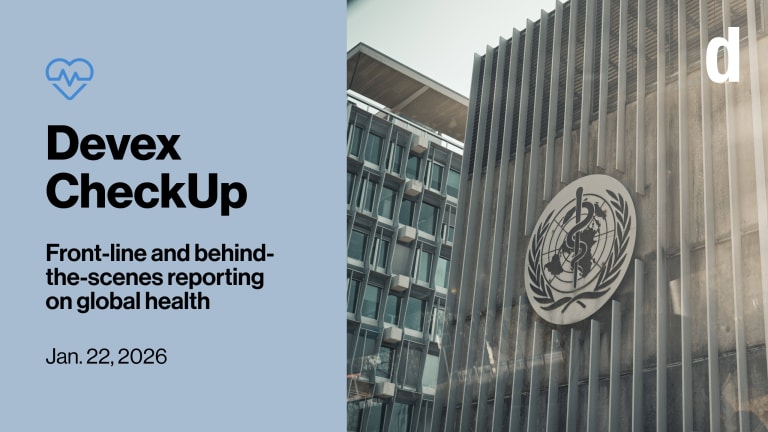
NAIROBI — The Bill & Melinda Gates Foundation announced an increase in its commitment to containing 2019 novel coronavirus to up to $100 million on Wednesday. The funds will go toward improving detection, isolation, and treatment efforts, as well as accelerating the development of vaccines, drugs, and diagnostics. Funds will also be allocated for protecting countries in Africa and South Asia against the spread of the virus.
More on the coronavirus
► Coronavirus: WHO sets the record straight on facts and misinformation
► Declaring coronavirus emergency alone is not enough, experts say
► Lab-grown novel coronavirus to speed up detection and response
This news comes as health officials have confirmed over 20,630 cases of the new virus globally, with over 420 deaths. The outbreak has overwhelmed health systems in China, which hosts the vast majority of the cases. Last week, the World Health Organization declared the outbreak a global health emergency.
“Multilateral organizations, national governments, the private sector and philanthropies must work together to slow the pace of the outbreak, help countries protect their most vulnerable citizens and accelerate the development of the tools to bring this epidemic under control,” said Gates Foundation CEO Mark Suzman in a press release.
On Jan. 26, the foundation had committed $10 million in funds — half of which was allocated to the response in China and the other to preparedness measures in Africa. The $100 million commitment is inclusive of these initial funds.
Since the foundation’s $10 million announcement — just over a week ago — the number of cases has increased by over 18,600 cases globally.
The Chinese government is scrambling to keep up with this exponentially increasing case count. A new 1,000-bed hospital was built in Wuhan — the virus’ epicenter — in a matter of days and began taking patients on Tuesday. Another new hospital with 1,600 beds will start to admit patients on Thursday.
Of the Gates Foundation’s funds, up to $20 million will go toward efforts to detect, isolate, and treat people with the virus. It will direct funds toward WHO, the U.S. Centers for Disease Control and Prevention, and national public health authorities in countries impacted — such as the National Health Commission of China and the Chinese Center for Disease Control and Prevention. The funding is aimed at helping to cover the initial costs of labor supplies.
The rest of the world is also bracing for a potential spread — particularly regions that are underresourced and where health systems are already weak, such as Africa and South Asia.
WHO is emphasizing the need for early detection in these countries, which includes surveillance at airports, such as fever screening.
In a press briefing Tuesday, WHO said there are no confirmed cases of 2019-nCoV in Africa, but that the likelihood of cases of the virus spreading to the continent is “very, very high.”
“We know how fragile the health system in the African continent [is] and these systems are already overwhelmed by many ongoing disease outbreaks, so for us it is critical to detect earlier so that we can prevent the spread within communities which can trigger quite a number of cases and easily overwhelm the treatment capacity,” said Dr. Michel Yao, emergency operations program manager at WHO's Africa Office, during a press briefing Tuesday.
WHO has identified 13 top priority countries in Africa that are vulnerable to the spread of 2019-nCoV, because of high volumes of travel between those countries and China. Those include Algeria, Angola, Côte d’Ivoire, the Democratic Republic of the Congo, Ethiopia, Ghana, Kenya, Mauritius, Nigeria, South Africa, Tanzania, Uganda, and Zambia. It expects to have staff in these countries by the end of the week and is working to build up the diagnostic laboratory capacity across the continent.
But other countries are concerned about whether they will have adequate support to fund their efforts to prepare.
“We are extremely short on money,” said Dr. Akram Ali Altoum, federal minister of health in Sudan at a WHO briefing Tuesday to update member states on the outbreak. “We are extremely keen on understanding what WHO public health emergency funds are available for countries like ours ... We are short … $2 million, basically, to be able to have the kind of preparedness that would enable us to feel quite secure.”
In South Asia, there have already been five cases documented in India, Nepal, and Sri Lanka.
From the foundation’s funding, up to $20 million will go toward public health authorities in Africa and South Asia to strengthen emergency operations centers, develop effective surveillance systems, and improve capacity to isolate and treat confirmed cases. In Africa, this includes funds allocated to the African Field Epidemiology Network, the Africa Centers for Disease Control and Prevention and WHO Regional Office for Africa.
Finally, up to $60 million of the Gates funding will be allocated toward accelerating the development and testing of vaccines, treatments, and diagnostics for 2019-nCoV. The funds will assist ongoing Chinese research partners, as well as support organizations like the Coalition for Epidemic Preparedness Innovations to identify research needs, incentivize product development by biotechnology and pharmaceutical companies, and ensure that products are safe and distributed widely.
If the outbreak continues for several months or more, “safe and effective vaccines and therapeutics will be needed to help sustain long-term approaches to disease control and to prevent severe disease and deaths,” according to the Gates Foundation.
Trials of the first coronavirus experimental drug from Gilead Sciences Inc. are expected to start next week.








